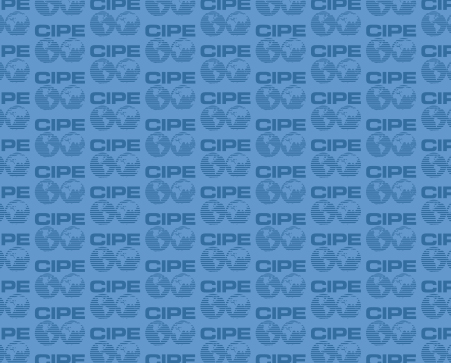
I remember walking on Bliss St. outside of the American University of Beirut (AUB) on the day of Lebanon’s 2009 parliamentary elections. As young people chanted slogans and waved the flags of their favorite political parties, I thought to myself “what a healthy democratic system Lebanon has”. But, as a local saying aimed at AUB students goes, “ignorance is on Bliss [St.]”.
Lebanon is a remarkably complicated society with an equally complicated history and political system, so the latest round of discussions for electoral reform may confuse some (it sure does me), or seem of little consequence to others, but to a great extent the fate of Lebanon rests on whether it can reform the electoral process. In principle, the Lebanese Republic is a democracy, but Lebanon’s religious-based confessional system has a strong self-perpetuating mechanism that prevents significant political change through electoral contestation.
Most parties are drawn along strong sectarian lines, so it is almost impossible for a party to be held accountable for its actions because its constituents are extremely unlikely to elect representatives from a different religion, no matter how their elected officials behave in government. Lebanese law also stipulates that a certain number of representatives be drawn from each sect. Christians are allocated a proportion of parliamentary seats based on a census conducted in 1932, but due to low birthrates and high emigration rates, they now control a highly disproportionate share of parliamentary seats, meaning that some seats allocated to Christian candidates fall in predominately Muslim districts.
Since parties are mostly religiously homogenous, they only contest seats allocated to the sects they serve. This means that voting in Muslims districts that have parliamentary seats allocated to Christians is essentially pointless because few are able to vote for the parties they support. Though the denomination assigned to each seat is usually based on the most prevalent denomination in the district which the seat will represent, this means that religious minorities in many electoral districts are effectively disenfranchised.
Another rule that perpetuates the status quo is that citizens are assigned to their paternal ancestral districts. My wife’s paternal grandfather came from the South, but her family has lived in Beirut for three generations. Nevertheless, she, her father, and her siblings must vote for representatives in a southern district, which is halfway across the country. Because the party they support does not operate in that district, they may only choose between parties that do not remotely represent their views, such as Amal and Hezbollah. Due to these factors, only my mother-in-law votes, because she is able to vote in a district in which her party fields candidates.
Lebanon’s current electoral districting divides the country into 26 Qada, or districts, about three of which would fit into an average US county. Gerrymandering of districts under pro-Syria governments to benefit Syrian allies has made these districts even more religiously homogenous. Because of this districting, political ideologies stagnate, further perpetuating the status quo and making it difficult for moderate politicians to enter the political arena.
Fierce electoral competition promotes moderation, but when districts are ideologically homogenous and seats are pre-allocated to specific sects, polarization occurs. Disproportionate representation and forcing constituents to vote in areas dominated by their sect reinforces sectarianism, entrenches social cleavages, and inhibits political change. The Christian-led Orthodox Gathering’s proposal has been gaining much traction lately, but it would maintain the confessional system, only with Lebanon as a single electoral district instead of many, further perpetuating sectarian thinking. As proof of this, one need look no further than the horrifying, divisive ads and statements on Lebanese television by various MPs arguing that that one cannot possibly be represented by an MP of another sect, or, in other words, that representation is secured through religion, not democracy.
Christian politicians are not the only ones promoting sectarianism. Lebanon’s most senior Sunni religious figure recently stated, essentially, that love should not be shared by people of different sects. Sectarianism not only undermines stability, but has painful social implications for many: permitting non-religious marriages is currently out of the question for the Lebanese government.
When political change does not occur through voting, politicians are held accountable neither for their actions, nor for the weakness of the governments in which they take part. Weak accountability means that corruption, ineptitude, and irrelevant legislation go unpunished on election day. Furthermore, government inefficiency translates to weak service delivery, so support grows for parties, such as Hezbollah, that provide social services. Consequently, political power can be gained outside of the democratic system, which not only saps the legitimacy of the government, but also means that parties can more easily build support for extremist ideologies.
Lebanon’s iniquitous and ineffective political system perpetuates sectarianism and weak accountability. The former gives way to instability and the latter to corruption, cronyism, and a lack of transparency. Both contribute to popular disenchantment, emigration, and brain drain and all serve to undermine the business environment and to retard economic development. Engrained sectarian divisions have allowed weak accountability to go unaddressed, further entrenching such divisions and creating a vicious cycle of dogmatism and poor governance.
One way forward is through civil society engagement and an important rallying point is the economy. For this reason, the work of organizations such as the Development for People and Nature Association to drive Lebanese to participate in public life is imperative to achieving meaningful change. Until Lebanon realizes electoral reform, lasting peace and prosperity will remain elusive. If Lebanon’s leaders think that perpetuating sectarianism is any sort of electoral reform, then clearly ignorance is not only on Bliss.
Matthew Godwin is Program Assistant for the Middle East and North Africa at CIPE.
Published Date: February 08, 2013